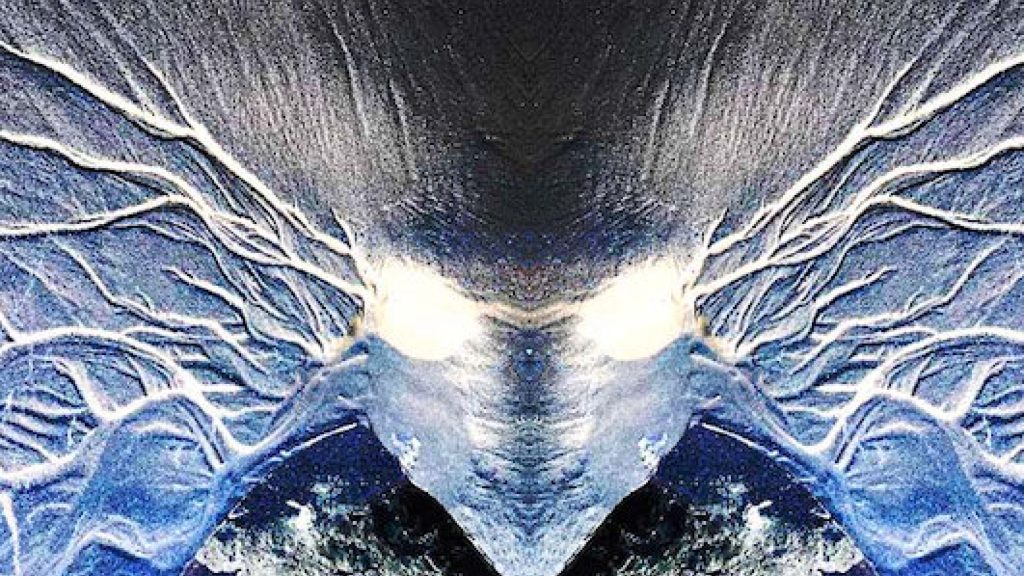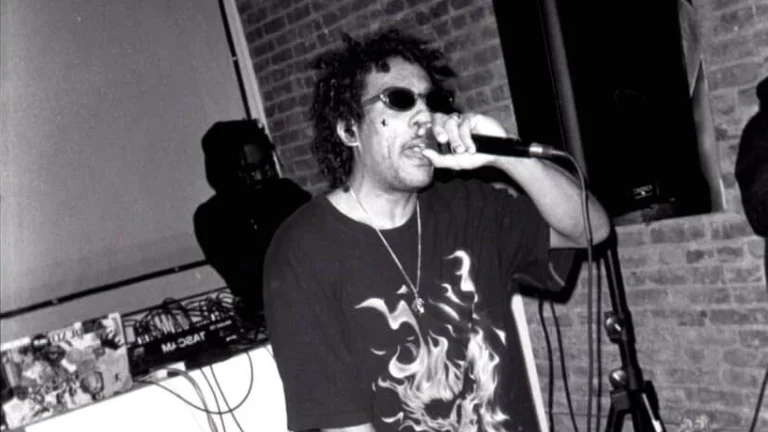The creative moniker of Ana Cuevas’ musical project perfectly describes the sound without needing a genre or adjective to break things down, but that doesn’t mean you can’t try. The best descriptions of Mind Mirage projects are strange, heavy, cathartic, meditative. You are entering a world that few will truly grasp when listening, except the other world you are exploring is the crevices of your brain. It’s ambient music that isn’t easy to ignore, goth where the only dancing that happens is within your mind, punk with chaos that has nowhere to go, and trip-hop that is heavy on the trip.
Her 2022 debut Burn to Grow Greener introduces you to confronting demons—both inside and out; the rubble that your mind can become, how it can impact you, and learning to have grace and love for those moments of darkness. While Burn to Grow Greener is the acknowledgment of the dissonance, Chaos Carousel is about the attempt to expel it all. So goes the thesis posed by the freeform “Mutt Alchemy.” “Tell the universe all your dark thoughts,” advises Cuevas over percolating synths that sound like electricity traveling bit by bit through one’s nerves. “It’s okay to be scared of your shadows, but they’re a part of you.”
And tell them she does. Where “Mutt Alchemy” allows the listener permission to be more open about their darker side, songs like the trippy “Butterfly Brain” offer the downside of trying to be open to other people. Almost lyrically structured like a poem, the track juxtaposes being forced to isolate from the world with being misunderstood by the world, further describing the hell of not having a community to lean on when things get rough, all underneath warm, dark synth pads. A common theme on this album is the act of trying to spiritually decipher and break down one’s bout with neurodivergence and how alienating it can all be.
The more abrasive “End of My Dazed Run” looks at night terrors less as nightmares and more like “graceful guides” toward life. As Chaos Carousel unfolds, the concept turns from mere expulsion of negative feelings towards trying to look at them and approach them in more holistic fashions—perhaps, even revolutionary.
Confrontational but still meditative “La Tierra,” a Spanish term for “the land,” looks outward as a piece of negativity that is the constant selling of whiteness, leading to an American—if not worldwide—alienation of those who don’t fit the standard of white supremacy. “The World Reversed,” a track that sounds like an imagined collapse of a world that Cuevas is trying to survive, widens the panorama further from insecurity inspired by and implanted through capitalism to the way systemic oppression has impacted the world as it is and the way it feels hard to disengage with as a whole. “The system cannot fix what it was never meant to do, Cuevas states. “First we burn it down, then, we pass it through.”
From far away, Mind Mirage’s music sounds like a dream you are making your way through—freeform yet intense and lucid. If Chaos Carousel indicates anything, it’s that the world we live in may as well be its own nightmare; a world where everything that could possibly be is burned down, crushed, and paved over by how things are, but not enough that it doesn’t stoke some kind of hope to return to its intended state, and Cuevas is the songstress in mourning such a world. Chaos Carousel teaches you that just because a certain nightmare doesn’t feel like it has a wake-up period does not mean that you can’t sing your way through to its possible end.





